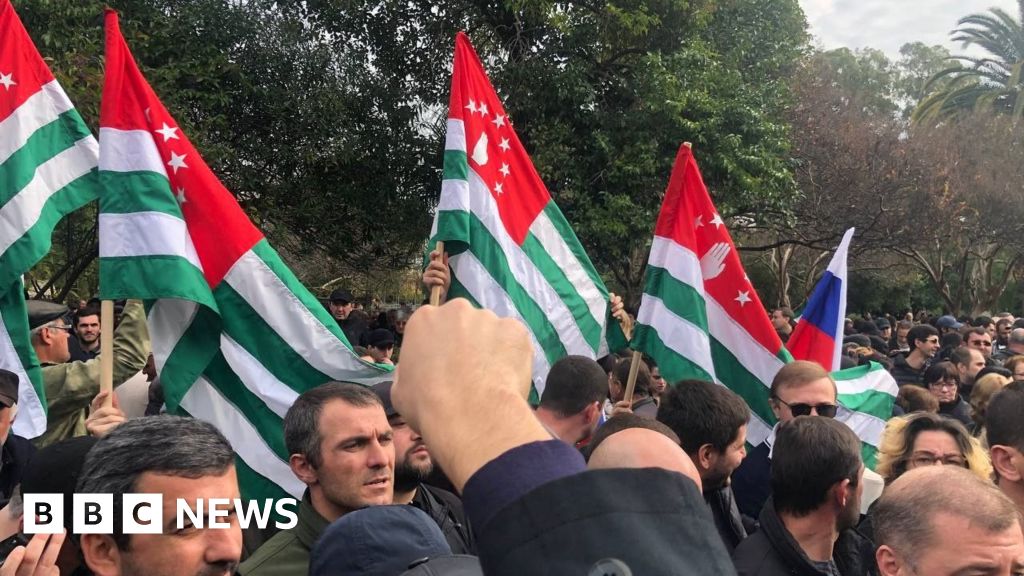Located along the Black Sea and Caucasus mountains, Abkhazia is known for its natural beauty and coastline. Locals feared an influx of Russian investment could ruin the landscape with residential complexes and price locals out of the property market.
Abkhazia was historically known as a holiday destination for the Soviet elite, and since being recognised by Moscow and its allies, has maintained a Russian presence.
The Russian foreign ministry warned its citizens to not travel to Abkhazia and if already there “to exercise increased caution, not to approach places of unrest, and, if possible, to leave” the area.
Foreign ministry spokeswoman Maria Zakharova said Russia would not interfere and “trusts” that the situation will be “resolved exclusively by peaceful political means”, adding it was unfortunate the opposition didn’t resolve disagreements through “civilised, mutually respectful dialogue”.
Video footage showed hundreds of protesters breaking into parliament, taking down window bars and climbing through smashed windows.
According to Russia’s state news agency RIA Novosti, protesters are demanding President Aslan Bzhania’s resignation, with the opposition currently discussing a replacement.
This is not the first time a leader has been called upon to resign.
In 2014, demonstrators stormed the presidential headquarters, forcing then-leader Alexander Ankvab to flee. He later resigned over accusations of corruption and misrule.
In 2020, opposition leader Raul Khadzhimba, who was elected following the unrest in 2014, was also forced to step down after street protests.

